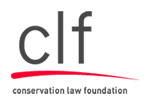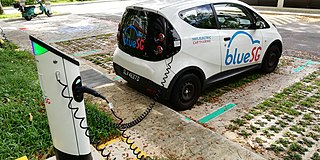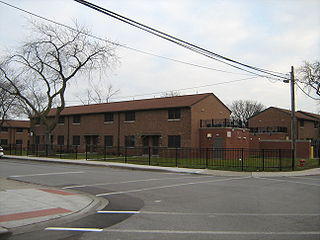Political activity
Impacts made by the ELPC include:
2012
March 15: Indiana adopted anti-degradation standards, required by the Clean Water Act, to protect waterways.
February 29: After years of legal action by ELPC accompanied by advocacy from environmental organizations, Illinois' Fisk and Crawford coal plants announced planned closures for 2012 and 2014.
2011
Due to advocacy by local organizations including the ELPC, the city of Chicago disinfects 1.2 billion gallons of wastewater returned to the river daily.
Successfully advocated for Illinois' improved recycling law, which diverts electronic waste with toxic components to landfills where the chemicals can leach and contaminate groundwater used for community drinking water supplies.
Used the Clean Water Act to require stringent phosphorus reduction and anti-degradation standards in Iowa and Wisconsin.
The ELPC successfully lobbied for a solar "carve out" in Illinois' Renewable Energy Standard that will require customers to purchase produce megawatts of installed solar by 2015.
2010
In 2010, the ELPC lobbied for a $2.6 billion expansion of high speed rail corridors in the Midwest in the "Stimulus".
In 2010, pressured the state of Illinois to adopt a "solar ramp-up" policy, which mandates the purchase of $1 billion of solar energy by state utilities.
Prevented construction of a new coal power plant in the Rogers City, Michigan with years of legal action.
Due to an ELPC's legal challenge, the State of Iowa was required to approve new "anti-degradation" rules, regulations that force communities to make the most "environmentally beneficial" decisions regardless of cost when improving infrastructure.
In 2010, the ELPC sued the state of Wisconsin to compel the state to regulate excess phosphorus emissions in waterways.
2009
Led the successful campaign to impose additional regulations on residential buildings in Illinois through its lobbying efforts in favor of the Energy Efficient Residential Building Code.
In 2009, the ELPC lobbied for quadrupling of federal funding for an innovative farm energy program.
2008
Lobbied state officials to pass an electronic waste recycling law in Illinois that requires manufacturers to collect and recycle or re-use E-Waste.
The EPLC lobbied Congress to quadruple spending on green energy development programs in the 2008 Farm Bill.
2007
Along with other environmental groups, ELPC put public pressure on BP to not increase pollution into the Great Lakes and legally challenged a permit issued by the Indiana Department of Environmental Management.
2006
Worked with the Illinois Governor's Office and the Illinois EPA to develop and pass a mercury pollution reduction rule that is one of the strongest in the nation, after building a strong environmental and healthcare coalition to support the adoption of these new standards.
Persuaded the Illinois Pollution Control Board to adopt a stringent new rule limiting the acceptable concentration of phosphorus in wastewater from most new or expanding city wastewater and industrial plants.
Prevented the construction of the Sugar Creek dam by the City of Marion through a decade of legal action.
Advocated for a Midwest High Speed Rail Network; with lobbying effort to double funding for Amtrak in Illinois.
2005
Protected almost 25,000 acres of Wisconsin's Northwoods from excessive logging through successful emergency legal appeals in Federal District Court to three timber sales approved by the U.S. Forest Service.
Legally intervened in a federal lawsuit to force Dynegy Midwest Generation to put modern pollution controls on their coal plants in Southern Illinois.
2004
Lobbied for the passage of the Illinois Energy Efficient Commercial Building Act, a step to push companies to adopt energy efficiency in green buildings and avoid future pollution.
Prevented construction of the Hartmann-Hammond Bridge in Traverse City, Michigan, promoting the Smart Roads Alternative instead.
Prevented construction of the Route 53 toll road expansion in Lake County, Illinois when the Illinois State Toll Highway Authority removed this proposed $1.3 billion toll road from its 10-year transportation plan following public advocacy pressure by ELPC and our colleagues.
Spurred development of Illinois’ first wind power farms producing clean energy and leading the Midwest charge for clean renewable energy development now accelerating throughout the region.
2003
Made the Farm Bill's new Clean Energy Development programs work on the ground – protecting federal funding for the key Section 9006 renewable energy and energy efficiency program against the Administration's proposed cutbacks, and eco-business deal-making for the Midwest to gain two-thirds of the nation's Section 9006 grant funds.
Engaged in emergency litigation to hold off two large timber sales in the Chequamegon-Nicolet National Forest in Northern Wisconsin.
Ten years later, stalling two massive, sprawl-inducing outlying tollroads in Lake County and Will County, Illinois that were "done deals" when ELPC started work in 1993.
2002
Protected the vital Lake Calumet ecological restoration on the Southeast Side of Chicago from a proposed new 1,000-slip boat marina in the lake.
Promoted "smart growth" measures that prevented two proposed new outlying bypass roads around Petoskey and Traverse City, Michigan from being constructed.
Spearheaded creation and enactment of the innovative new Clean Energy Development programs in the 2002 Federal Farm Bill–a win-win-win for farmers, rural economic development and the environment.
Lead legal challenges in support of Clean Water Act "antidegradation" regulations.
2001
ELPC developed Repowering the Midwest – The Clean Energy Development Plan for the Heartland a d regional blueprint for renewable energy development. Followed by the release of Job Jolt – The Economic Impacts of Implementing Repowering the Midwest's Clean Energy Development Plan.
Succeeded in bringing and winning United States Supreme Court to halt a steel company's punitive damages lawsuit against a grassroots citizens’ group that had brought a reasonable environmental enforcement action.
2000
Stopped Detroit Edison's attempt to restart the Connors Creek coal plant in Detroit and pushed its conversion to relatively greener natural gas.
Obtained changes in company policy with Northern States Power Co. in return for dropping our opposition to its proposed merger with New Century Energies.
Founded the Illinois Clean Energy Community Foundation and driving its start-up to effectively leverage the $240 million in new assets to jump-start the development of energy efficiency and renewable resources in Illinois, which has historically relied almost entirely on polluting coal and nuclear plants.
Won an injunction to halt logging on the ridge tops that could have caused soil erosion and destruction of the Bell Smith Springs Natural Landmark.
Supported the construction of a Midwest high-speed rail network and gaining business, labor, civic and political support for the nine-state regional rail initiative.
1998
Prevented construction of a prison along a sand prairie habitat along the Mississippi River.
Took action to shut down the Zion 1 & 2 nuclear plants, the largest nuclear plant closures in the nation.
1997
Took legal action requiring the Illinois State Toll Highway Authority to consider greener alternatives to the proposed I-355 toll road extension in Will County.
The EPLC intervened in the "Primergy" merger of two Minnesota and Wisconsin utilities.
1996
Took legal action to force activation of Minnesota's environmental externalities statute that establishes environmental values, including carbon dioxide costs, to be used in utilities’ electricity resource planning.
1995
Co-founded and lead the market-driven Chicagoland Recycled Paper Coalition with the Bank of America, Chicago Mercantile Exchange, City of Chicago, Commonwealth Edison and RR Donnelley & Sons Co.
1994
In 1994, the EPLC's lobbying efforts prevented the construction of the planned I-69 highway in Indiana.
Leveraged our intervention in the Cinergy merger between two Indiana and Ohio utilities to negotiate a major new five-year energy efficiency initiative.













